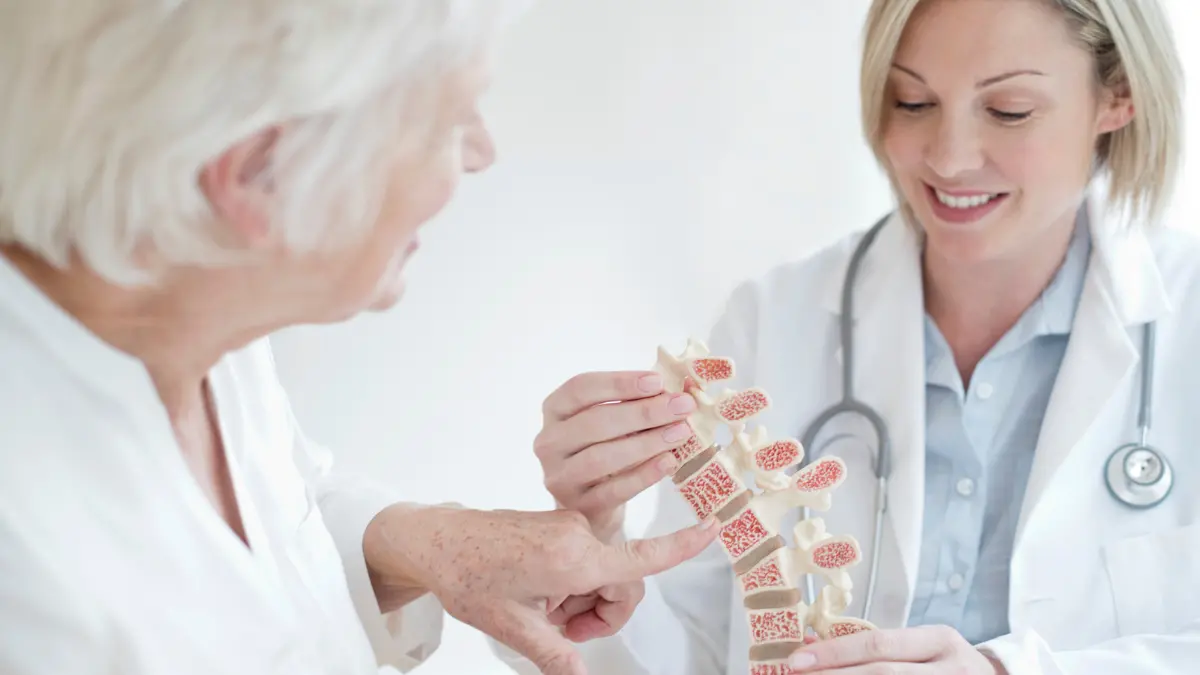Exploring the Potential of Probiotics for Menopause Symptom Relief
As per the National Institute of Aging, more than 1 million women experience Menopause every year.
Menopausal changes can lead to various physical and emotional symptoms.
While there are numerous approaches to managing Menopause symptoms, including hormone replacement therapy and lifestyle modifications, an emerging area of interest is probiotics.
In this article, we explore the potential role of probiotics for Menopause symptoms.
Probiotics and Menopause symptoms
The involvement of probiotics in menopause and their precise mechanism in supporting human health remains an ongoing subject of study.
Yet increasing evidence confirms their beneficial impacts on women undergoing menopausal symptoms.
Osteoporosis
Menopause accelerates bone loss by 2-5% annually and may continue for ten years.
Around half of women over 50 may damage their bones because of Osteoporosis.
Women experiencing Menopause who took Lactobacillus helveticus fermented milk probiotics exhibited help in increasing bone density and mineral content.
It also helped in decreasing bone resorption.
In another study, probiotics have increased lumbar bone mineral density in postmenopausal women.
Weight loss
Postmenopausal women are more likely to have increased fat levels than premenopausal women.
During the menopausal transition, hormone fluctuations can contribute to an increase in body weight.
Probiotics help create a healthy gut environment, improve digestion, and regulate metabolism, making them a good solution.
These helpful microorganisms protect and alleviate issues like constipation, bloating, and irregular bowel movements, thus easing discomfort.
Moreover, probiotics influence hormone equilibrium, subdue inflammation, and help weight management.
By adding probiotic supplements to your diet, you can maintain a healthy body weight during Menopause.
Hot flashes and night sweats

Probiotics can offer relief from hot flashes and night sweats during Menopause.
By improving gut health, probiotics help regulate hormone levels and reduce the intensity and frequency of these symptoms.
Probiotics aid in maintaining hormonal equilibrium, thereby easing hot flashes and night sweats.
Moreover, probiotics possess anti-inflammatory characteristics that can diminish bodily inflammation, reducing these symptoms associated with Menopause.
This can help in enhancing overall well-being during the menopausal period.
Low mood
Taking probiotics during Menopause can help improve low mood.
Our gut and brain are connected, and probiotics improve gut health, which affects how we feel mentally.
Probiotics promote a healthy gut environment, regulate brain chemicals, and reduce inflammation, which may ease low mood symptoms.
They also support hormone balance, which can positively impact emotional well-being.
While more research is needed, adding probiotics to your diet or taking supplements could be a valuable part of managing low mood during Menopause.
Vaginal atrophy and dryness
The vaginal region is home to diverse bacterial species, primarily Lactobacillus, contributing to its overall well-being.
Throughout Menopause, these microbes are believed to influence various symptoms associated with genitourinary syndrome of Menopause (GSM).
These symptoms include discomfort, dryness, and painful sexual intercourse.
Lactobacillus encompasses several distinct species, with Lactobacillus iners and Lactobacillus crispatus being the most prevalent in a healthy vaginal environment.
A study states that if taken orally, these may help with vaginal health and reduce vaginal infections.
Bloating

Probiotics taken during Menopause can also help with bloating.
An analysis done in 2015, including 1793 patients with Irritable Bowel Syndrome (IBS), found that probiotics benefit bloating.
However, bloating can happen due to various other reasons during Menopause.
What to look for while choosing probiotics
When choosing a probiotic for Menopause, consider these factors:
- Look for a probiotic with various strains to support overall gut health
- Seek strains specifically targeting menopausal symptoms, like Lactobacillus acidophilus
- Ensure a high colony-forming unit (CFU) count for potency
- Choose a probiotic with a protective delivery system, such as enteric coatings or microencapsulation, for better survival through the digestive system
- Consult with your doctor for personalized advice based on your specific needs
Conclusion
Probiotics offer potential benefits for menopausal women.
They can help manage weight, reduce hot flashes and night sweats, improve mood, and support vaginal health.
Probiotics, mainly Lactobacillus, aid digestion, regulate hormones, and reduce inflammation by promoting a healthy gut.
More research is needed to understand the extent of their effects fully.
Incorporating probiotics into one’s diet can be a valuable component of managing menopausal symptoms.
Consult your doctor for personalized recommendations and guidance.
Frequently Asked Questions
Are probiotics good for Menopause?
Probiotics may benefit Menopause by supporting gut health and potentially alleviating specific symptoms. However, individual responses can vary, and it’s advisable to consult a doctor for personalized guidance on probiotic use during Menopause.
What probiotic is best for Menopause?
The best probiotic for Menopause can vary depending on individual needs and symptoms. Lactobacillus acidophilus and Bifidobacterium are commonly recommended strains. However, it’s essential to consider quality, potency, and specific formulations when choosing a probiotic supplement for Menopause.
Should I take a probiotic during Menopause?
Exploring the potential benefits of a probiotic during Menopause can help support gut health and alleviate specific symptoms. However, everyone’s experience is unique, making it a personal decision. Considering a probiotic supplement and monitoring its effects on your well-being may be worthwhile.
Why do probiotics help with Menopause?
Probiotics can support Menopause by promoting gut health, potentially influencing hormone balance, reducing inflammation, and alleviating specific symptoms. While more research is needed, their benefits are worth exploring for menopausal well-being.
WowRx uses only high-quality sources while writing our articles. Please read our content information policy to know more about how we keep our content reliable and trustworthy.






